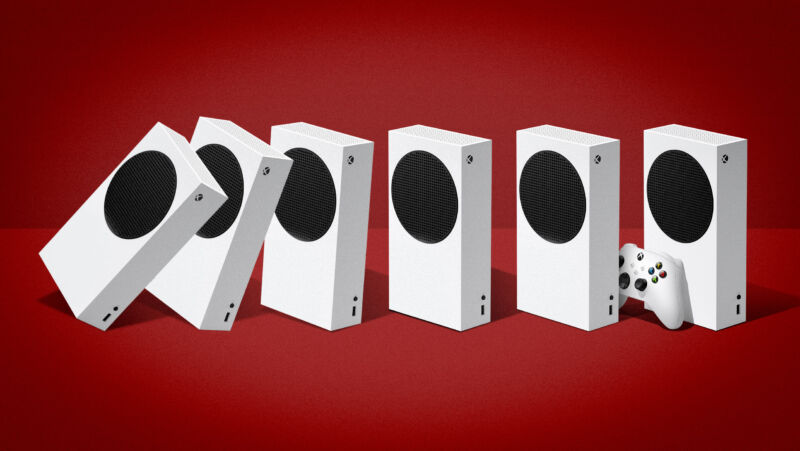
Aurich Lawson
It’s been a busy time in the Xbox rumor mill of late. Last weekend, the Verge reported that Microsoft was considering launching a version of Bethesda’s upcoming Indiana Jones and the Great Circle on PlayStation 5, alongside plans to port last year’s Hi-Fi Rush to other consoles. That same weekend, Xbox Eras published more lightly sourced rumors suggesting that prominent Xbox exclusive Starfield would be getting a PS5 port.
While Microsoft hasn’t directly commented on these reports, Xbox chief Phil Spencer wrote on social media that Microsoft is “planning a business update event for next week, where we look forward to sharing more details with you about our vision for the future of Xbox.”
The churning rumor mill has set off something of an existential crisis among some Xbox superfans, content creators, and influencers, who are worried that Microsoft is planning to essentially abandon their favored console. “Genuinely feel terrible for convincing my sister to get an Xbox instead of a PS5,” XboxYoda posted in a representative social media take. “Like I actually feel like I let her down… .”
“If you like being lied to that’s a you thing,” social media user XcloudTimdog posted. “I have a set of standards, that’s all. Cross them and, well, I respond.”
These and other more apocalyptic reactions might seem like hyperbolic whining from territorial console misanthropes. But they also have the germ of a point. Exclusive games have long been the primary way console makers argue for players to choose their console over the competition. If Microsoft effectively changes that argument in the middle of the current console generation, Xbox owners will have some legitimate reason to be upset.
A world without Xbox exclusives
To see why, start with a simple thought experiment. Say it’s early 2020 and Microsoft announces that it is abandoning the idea of console exclusives entirely. Upcoming Xbox Game Studios titles like Halo Infinite and Starfield would still be released on the upcoming Xbox Series X/S, of course, but they’d also all see equivalent versions launch on the PS5 (and sometimes the Switch) on the same day. Sony does not respond in kind and keeps major franchises like God of War and Spider-Man exclusive to the PS5.

In this hypothetical world, convincing someone to buy an Xbox becomes much more difficult. On the one hand, you have a PlayStation console that can play all of the major big-budget games published by both Microsoft and Sony. On the other, you have an Xbox that doesn’t have access to the significant Sony half of that gaming equation.
There are other reasons you might still consider an Xbox in this world. Maybe you think the reduced price of the Xbox Series S delivers more “bang for the buck.” Maybe you prefer the Xbox controller layout or some of Xbox’s system-level OS features. Maybe you’re convinced cross-platform games will look or play better on Microsoft’s machine.
But in the console market, these kinds of concerns often take a back seat to the prospect of a system’s exclusive games and franchises. The biggest exclusive titles are called “system sellers” for a reason—they’re the games that make many gamers plunk down hundreds of dollars on hardware just for the possibility of spending more on this must-have software.
In this hypothetical, Microsoft would essentially be trying to sell the Xbox without any exclusive system sellers.
